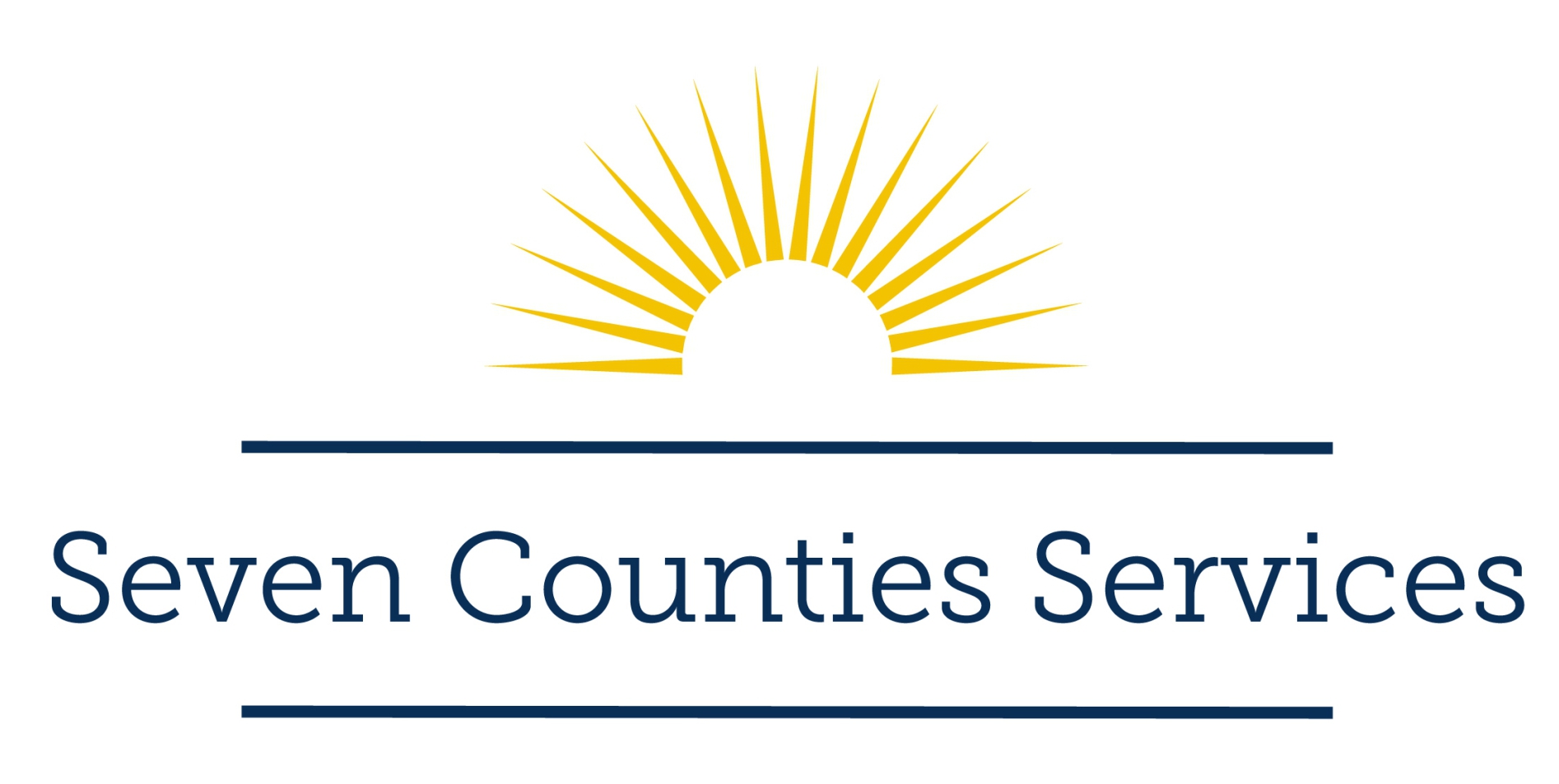Regional Prevention Center
 The Regional Prevention Center at Seven Counties Services is one of fourteen in Kentucky that works to prevent and reduce substance use and suicide within our communities. The Regional Prevention Center brings together adult and youth community volunteers with state and local policy makers, social service providers, educational staff, public health personnel, business and church leaders, and law enforcement representatives. All are dedicated to promoting healthy lifestyles and preventing substance use and suicide. Below are some of the programs administered by the Prevention Division. There is a fee associated with some programs to cover the cost of materials.
The Regional Prevention Center at Seven Counties Services is one of fourteen in Kentucky that works to prevent and reduce substance use and suicide within our communities. The Regional Prevention Center brings together adult and youth community volunteers with state and local policy makers, social service providers, educational staff, public health personnel, business and church leaders, and law enforcement representatives. All are dedicated to promoting healthy lifestyles and preventing substance use and suicide. Below are some of the programs administered by the Prevention Division. There is a fee associated with some programs to cover the cost of materials.
Kentucky Moms
An educational program for women who are pregnant or recently post-partum. Participants learn how to make healthy choices during pregnancy, discuss resources available in the community and receive incentives for attending.
Early Intervention Program (EIP)
The Early Intervention Program is for adolescents ages 13-20 who are at risk for, or who may already be experiencing problems related to alcohol, tobacco, or other drug use. Services include brief assessment, youth and parent education and support sessions, assistance in referral to other needed community resources, case management, and follow-up.
Zero-Tolerance Under 21 DUI Program (ZT)
This specialized program provides services to young people ages 16-20 who have been charged with state regulation KRS 189A.010(1) (e), with a Zero Tolerance under 21 DUI offense. Services are similar as described above for the Early Intervention Program, with additional emphasis on impaired driving. Parents are not required to attend if the young person is over the age of 18.
Question Persuade Refer (QPR) Gatekeeper
The QPR (Question, Persuade, and Refer) Gatekeeper Training for Suicide Prevention is a 1- to 2-hour educational program designed to teach “gatekeepers” — those who are strategically positioned to recognize and refer someone at risk of suicide (e.g. parents, friends, neighbors, teachers, coaches, caseworkers, police officers) — the warning signs of a suicide crisis and how to respond by following three steps: question the individual’s desire or intent regarding suicide, persuade the person to seek and accept help and refer the person to appropriate resources.
Mental Health First Aid (MHFA) for Youth, Adults, and Public Safety
Mental Health First Aid is an education program designed to improve participants’ knowledge — and modify their attitudes and perceptions — about mental health, substance use, and related issues, including how to respond to individuals who are experiencing one or more acute mental health crises. Youth Mental Health First Aid is designed to teach parents, family members, caregivers, teachers, school staff, neighbors, health and human services workers, and other caring citizens how to help adolescents aged 12-18. Adult Mental Health First Aid is designed to teach family members, caregivers, friends, neighbors, co-workers, and other caring citizens how to help adults age 18 and older. Public Safety Mental Health First Aid is designed to teach law enforcement, corrections, and public safety officials. After completing the interactive 8-hour course and passing an examination, participants are certified for three years as a Mental Health First Aider.
Screening, Brief Intervention, and Referral to Treatment (SBIRT)
Screening, Brief Intervention, and Referral to Treatment (SBIRT) is an evidence-based practice used to identify, reduce, and prevent problematic use, misuse, and dependence on alcohol and illicit drugs. SBIRT is a screening tool used by medical and mental health professionals both clinical and non-clinical. The SBIRT model can provide resources in the area of greatest need. SBIRT helps reconceptualize how we understand substance use problems; re-define how we identify substance use problems; and re-design how we treat substance use problems.
Too Good for Drugs
An educational program for youth in grades K-12. K-5 teaches the fundamental elements of social and emotional learning, 6-8 empowers teens to meet challenges by addressing more complex emotions and situations, and 9-12 explores practical guidance for understanding dating and relationships, violence and conflict, underage drinking, substance use, and healthy friendships.
Guiding Good Choices
This training program is for parents of children in grades 4-8, and can be provided at schools, churches and other locations throughout the region. The program consists of five, two-hour sessions. Parents learn to increase their children’s family involvement and to strengthen family bonds; establish a family position on drugs; teach skills needed by children and adolescents such as effective refusal; provide effective reinforcement and appropriate consequences; use tools to resolve family conflict; and effectively express and control anger.
Staying Connected with Your Teen
The Staying Connected with Your Teen program shows parents of teens in grades 7-12 how to improve their family management practices and strengthen the bonds between them and their children, resulting in substance use prevention, violence prevention, and positive character development. The program features five or six 60-90 minute sessions and provides step-by-step directions for holding family meetings and resolving conflicts. Each topic is covered in a simple, entertaining format so that all types of families can make the program work for them.
Grassroots Community Programs and Services
The RPC helps bring community residents, leaders, and groups together to discuss their community’s strengths and needs to develop a comprehensive plan to address substance use, suicide, and related consequences. Services offered: community action and mobilization, coalition building, community assessment, evidence-based prevention programs, grant writing, program evaluation, and strategic planning
Wellness Initiative for Senior Education (WISE)
The Wellness Initiative for Senior Education (WISE) is a curriculum-based health promotion program that aims to help older adults increase their knowledge and awareness of issues related to health and the aging process. The six-lesson WISE curriculum is delivered by trained substance use prevention specialists at small-group sessions held weekly over a 6-week period. Each lesson lasts 2-3 hours.
Sources of Strength
Sources of Strength is an evidence-based, peer-led mental wellness program that has been shown to reduce a number of problems: substance use, bullying, violence, and mental health crises (including suicidal thoughts and behaviors). This program uses the power of peer social networks to change cultures within a school or organization. Under the guidance of caring adult advisors, a diverse group of identified peer leaders develop messages and activities that promote hope, help, and strength throughout the school and beyond.
Prime for Life (PFL)
Prime for Life (PFL) is a motivational intervention used in group settings to prevent alcohol and drug problems or provide early intervention. Different versions of the program, ranging from 4.5 to 20 hours in duration, and optional activities are available to guide use with various populations. PFL emphasizes changing participants’ perceptions of the risks of drug and alcohol use and related attitudes and beliefs. Participants are guided in self-assessing their level of progression toward or into dependence or addiction. PFL also assists participants in developing a detailed plan for successfully following through with behavior change. Multimedia presentations and extensive guided discussion help motivate participants to reduce their substance use or maintain low-risk choices.
Youth Empowerment System
The Youth Empowerment Prevention Specialists provide technical assistance to adult advisors on evidence-based youth empowerment strategies.
Dover Youth 2 Youth Trainings
Dover Youth 2 Youth is a youth empowerment program based in Dover, New Hampshire, that takes on the threat of alcohol and drug use. Dover Y2Y provides trainings to youth and/or the adult staff who work with youth. This is generally to assist another community in starting (or strengthening) a youth empowerment program like their own. The Youth Empowerment Specialists work closely with this group to implement state-wide trainings.
Youth Empowerment System Grants (YES Grants)
The YES Grant is dedicated to empowering and amplifying the voices of the young people of Kentucky. With the collaboration of Regional Prevention Centers, we work towards making a difference in communities by becoming ambassadors of change. The YES Grant is focused on making a positive impact on alcohol, tobacco, and other drug use and mental health by addressing the shared risk and protective factors. Through evidence-based practices and community collaboration, YES Ambassadors work to be effective change agents for Kentucky. The YES Grant requires a yearly application from youth groups who wish to obtain funds to support prevention-based activities.
The Purple Star Award
The Purple Star Award is a state-sponsored recognition for an individual school’s dedication and support of military-connected youth. Schools designate a liaison trained in military culture to serve as the point of contact for military students and their families, provide a resource page for military families on the school website, and host one or more military recognition events. Purple Star awardees receive a special recognition to display at their school along with statewide recognition and a press conference for their achievement letting military parents know, whether they are on active duty or in the National Guard, Reserves, or Veteran that the school is dedicated to helping their child gain the educational skills necessary to be college-, workforce- and life-ready.


